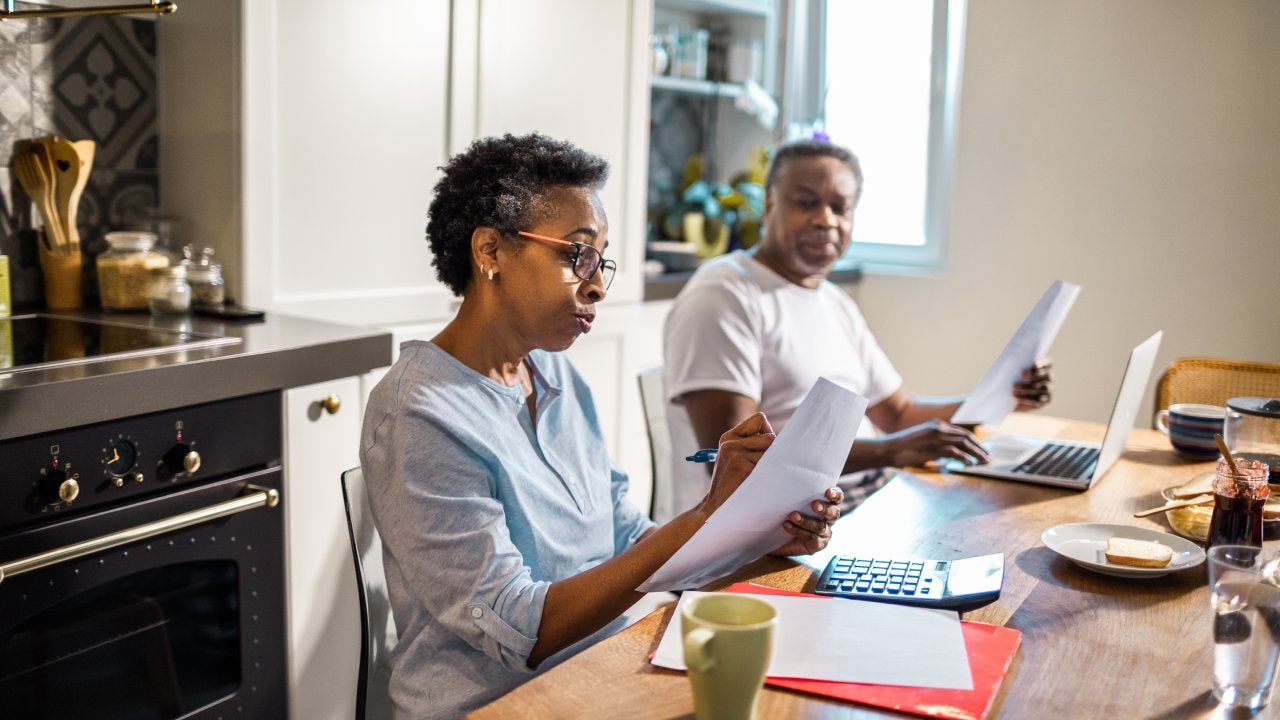How to sell a house by owner in Georgia

Key takeaways
- It is possible to sell your house in Georgia without a real estate agent, but the process requires a lot of work.
- You will save on the seller's agent commission fee, since you’re not hiring one, but you will still have to pay your buyer’s agent’s fee.
- Georgia law requires that you hire a real estate attorney to close the sale of a home, whether you use an agent or not.
If you are looking to sell a home in Georgia, you can go the traditional route by using a real estate agent. But if you’re hoping to forgo the cost of an agent, or just don’t want someone else involved in your business, you may want to know how to sell in Georgia without a Realtor.
Selling your home on your own — known as “for sale by owner” or FSBO for short — is possible in the Peach State, but it’s not necessarily easy. You will need to learn about local laws and regulations, prepare the home for sale, coordinate showings and negotiate with the buyer all on your own. Here’s everything you need to think about before undertaking a FSBO listing in Georgia.
How to sell by owner in Georgia
Selling your property can be a lot of work even with a Realtor by your side. If you plan to sell without a real estate agent, you can expect to take on even more responsibilities. Here’s how to start the process:
Know local laws
Start by doing your research to make sure you understand the state and local laws around selling your home. For example, without an agent to take care of things for you, you will need to educate yourself on disclosure laws and how to create — and negotiate the terms of — a purchase contract for the transaction.
Prepare the property for showing
Typically, a real estate agent offers advice on preparing your home for the sale. They will be able to tell you which repairs are worth it and which are not, for example, or whether professional staging might help you earn a higher sale price. For a FSBO listing, look into which improvements might increase the value of your home, and weigh their feasibility against your timeline and budget. Don’t waste your time on overly costly or time-consuming projects that won’t pay off. Generally speaking, small repairs and curb-appeal improvements are worth it to make your home feel more welcoming to potential buyers. But major renovations, like a complete kitchen remodel, typically do not recoup their cost when you sell.
Create a listing
Listing your property for sale requires a compelling presentation of what it has to offer. Buyers will look at your listing online first, so make sure what they see inspires them to come take a look in person. High-quality visuals will go a long way, so consider hiring a professional photographer to guarantee stunning pictures that will make your listing stand out.
In addition to attractive photos, you’ll need to craft an accurate and appealing property description. Include key details like number of bedrooms and bathrooms, square footage, lot size and more, and don’t forget to highlight any special features, like skylights or a swimming pool. Neighborhood info is also helpful, including nearby amenities and what school district you’re in.
Most important is determining the right list price. Be honest with yourself about the property’s fair market value and not just its sentimental value. Research the current market trends in your area and recent sales of comparable properties nearby to establish a price that is both competitive and fair. A well-thought-out pricing strategy not only attracts potential buyers but also increases the likelihood of a timely sale.
Market the property
Now you need to get your listing seen by house-hunters. You can market your property for free by posting on social media, Craigslist and neighborhood websites, and by distributing flyers locally to spread the word. (Take extra care about what kind of information you disclose on public websites, especially if you are still living in the home.) Yard signs help, too.
Georgia FSBO sellers can have their home on a local MLS — the large database of available homes typically used by real estate agents — by using an online listing service, which will usually charge a flat fee. You can also list the property on sites like ForSaleByOwner.com or FSBO.com.
Consider offers
Hopefully, you’ll get an offer soon. Depending on the local housing market, you may even receive several. If so, you will need to review them and decide which offer to choose. The highest bid is not necessarily always the best: Consider other factors too, including timeline, contingencies and the buyer’s financing situation.
Close the sale
Once you choose a buyer, you will need to draft a purchase contract and begin the closing process. In some cases, you may need to negotiate to come to an agreement on the purchase. The closing process requires a number of documents to complete a legal purchase. The paperwork needed can vary by city or county and specific property types, and it can be complex.
Keep in mind: Georgia law requires that a licensed attorney oversee all real estate closings.
Luckily, unlike many other states, Georgia requires that an attorney manage the closing of all real estate transactions. While this means you’ll have to pay legal fees, it also means you’ll have a qualified legal expert to make sure the paperwork and contract are all buttoned-up. Have your attorney hired before you reach the closing stage, so that the deal is not delayed by your search.
Required disclosures for Georgia home sellers
Another unusual aspect of selling a home in the Peach State: Georgia law doesn’t require sellers to fill out a seller property disclosure statement, as many states do. Georgia courts follow the “caveat emptor” doctrine for real estate, meaning “let the buyer beware” — this means buyers are expected to do their own due diligence and get a home inspection to uncover any defects in the house.
However, in the interest of transparency, sellers should still disclose any known property defects. And you may not knowingly withhold relevant information. If you are unsure about exactly what you should and shouldn’t disclose, consult your real estate attorney.
Pros and cons of selling a house by owner in Georgia
Consider these benefits and drawbacks to determine if selling your Georgia home without a Realtor is right for you.
Pros
- Save on commission: FSBO sellers don’t have a listing agent, so they don’t pay a listing agent’s commission fee. This typically runs 2.5 to 3 percent of a home’s sale price, so the savings can be significant. However, it’s important to remember that you will still have to pay your buyer’s real estate agent’s fee, so you don’t avoid commissions altogether.
- Make your own decisions: Selling without a real estate agent grants sellers full autonomy over decision-making. From setting the listing price to marketing efforts, you have complete control throughout the process.
- Move faster: Without the need for an intermediary, the selling process may be expedited. Direct communication between the seller and buyer can lead to quicker negotiations and a potentially faster closing.
Cons
- Minimal guidance: Selling a house involves navigating a lot of complexities. Without a licensed real estate pro to guide them, FSBO sellers might miss important details or make costly mistakes.
- More work: Selling a property is a lot of responsibility and a big time commitment. Without a real estate agent, sellers must take on tasks like marketing, paperwork and negotiations themselves, which can be very demanding.
-
You still have to hire a professional: Because Georgia requires a real estate attorney to handle real estate closings, a FSBO sale here still requires paying a pro for their help — you’ll just be paying a lawyer rather than a Realtor.
FAQs
-
Yes, it is possible to sell your house without a real estate agent in Georgia. However, the process requires a lot of work — all the responsibilities that normally fall to an agent, like market research, coordinating showings, negotiating contracts and more, falls on your own shoulders.
-
Yes. The state of Georgia requires that a real estate attorney oversee the closing of every real estate transaction. You don’t necessarily need an attorney throughout the whole process — you could potentially hire one for the closing only — but for FSBO sales in particular, it’s smart to have an attorney review all your paperwork before that point. There’s a lot of money on the line, and you want to make sure your deal is sound and your interests are represented.
Why we ask for feedback Your feedback helps us improve our content and services. It takes less than a minute to complete.
Your responses are anonymous and will only be used for improving our website.
You may also like

3 Ways to check your student loan balance





